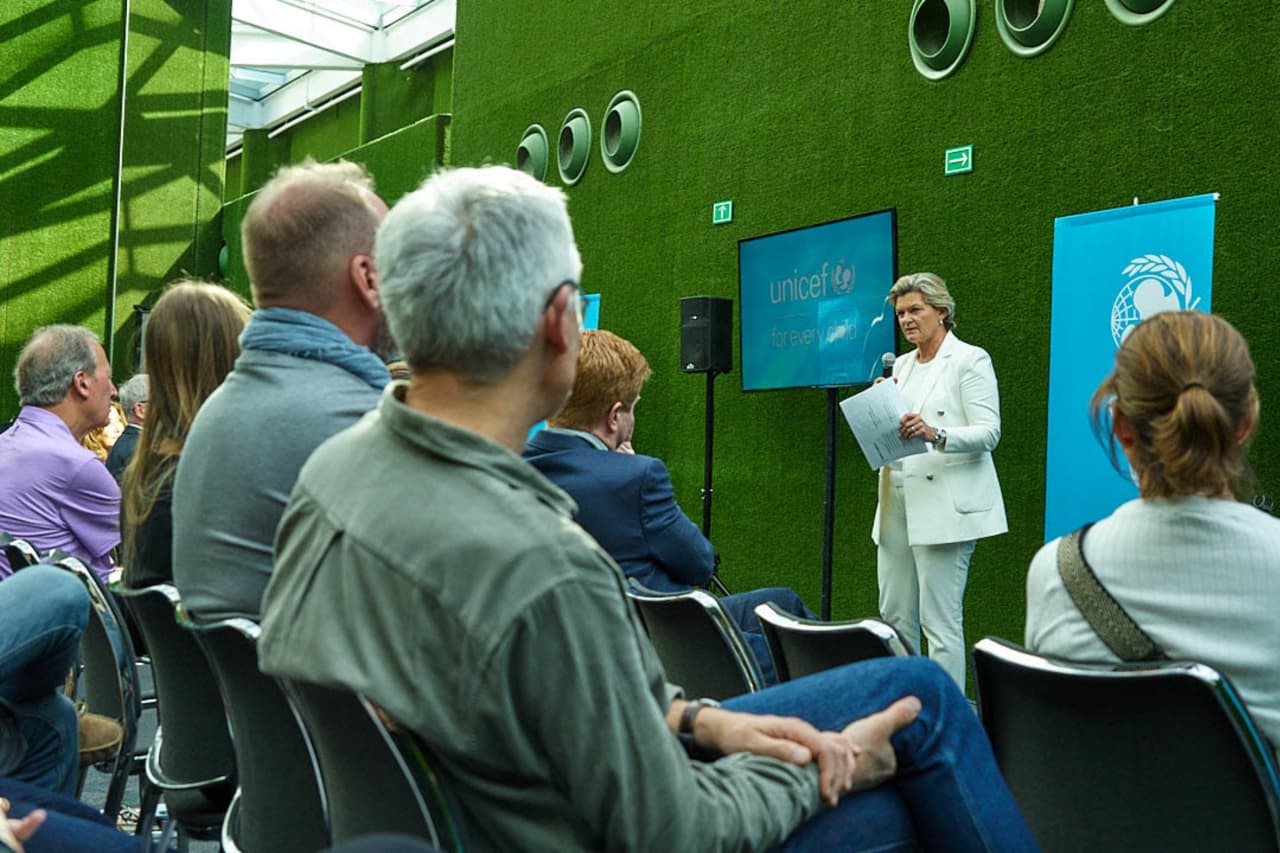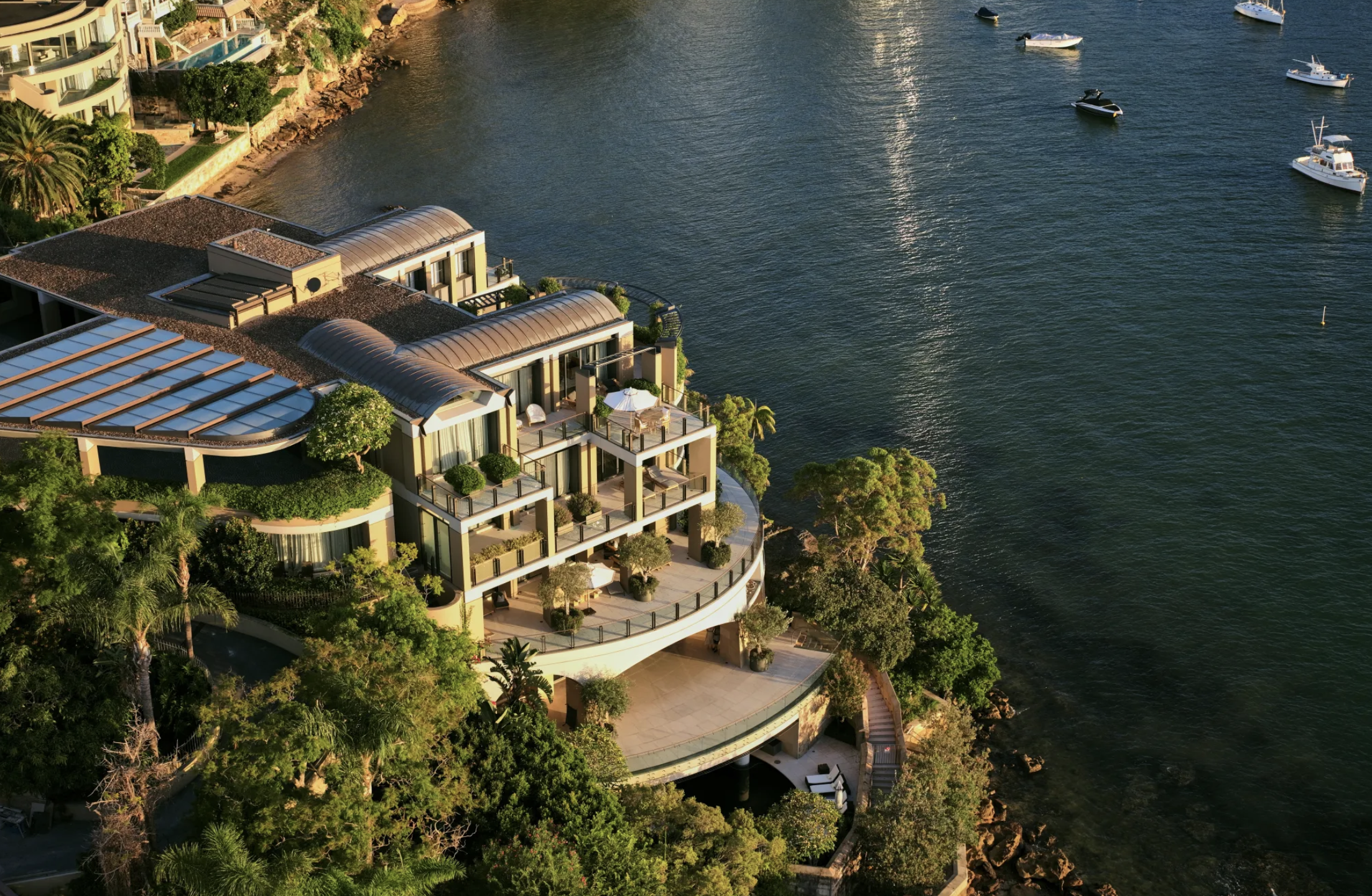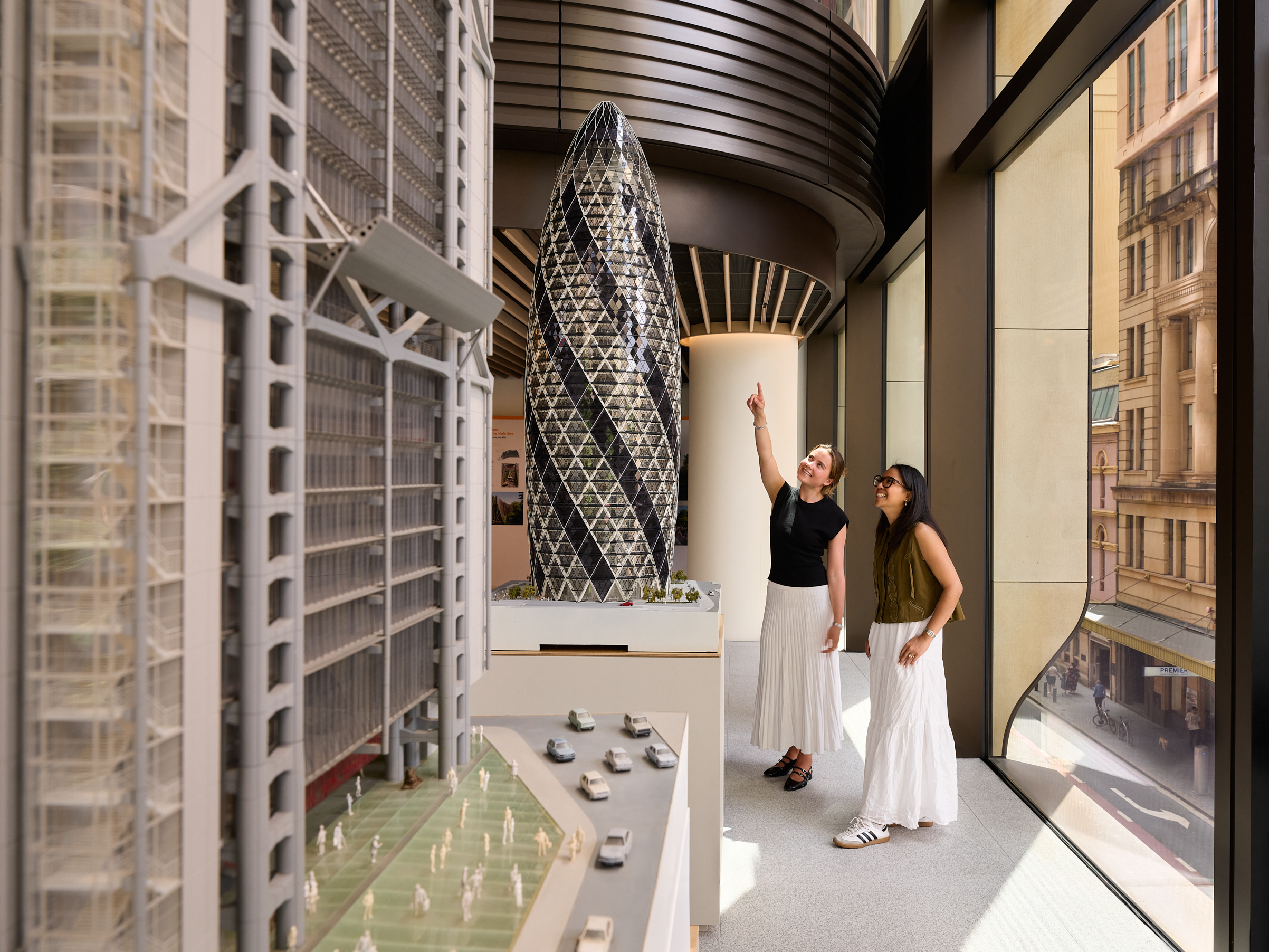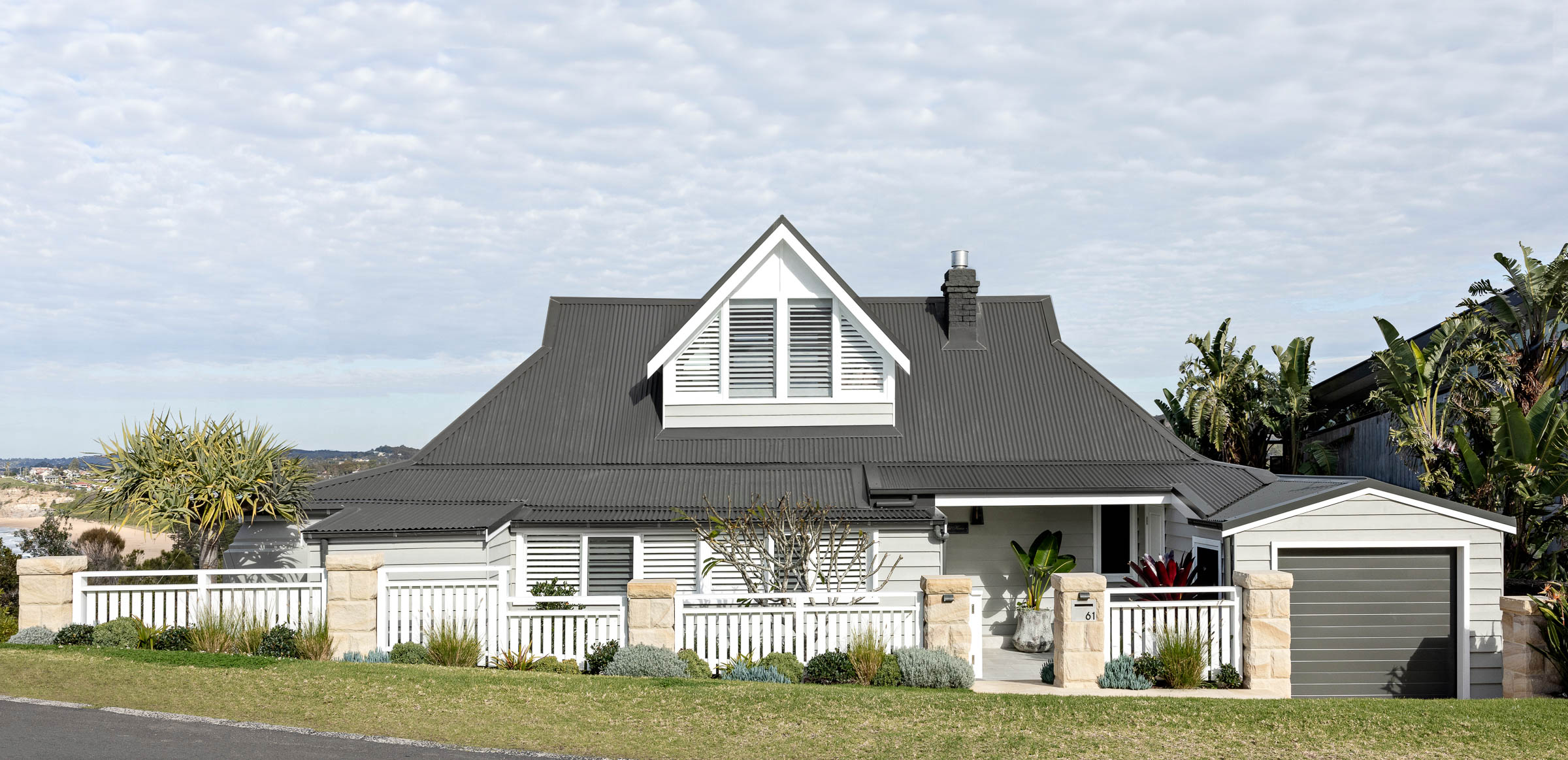Unicef Has a Growing Circle of Ultra-Wealthy Individuals on Tap
During the Covid pandemic in 2021, Silicon Valley venture capitalist John O’Farrell organised a call with several tech CEOs to urge them to back Unicef’s efforts to distribute vaccines globally as he and his wife, Gloria Principe, were doing.
Stewart Butterfield , co-founder and—at the time—the CEO of Slack, and his wife, Jen Rubio , co-founder and CEO of Away, “gave US$25 million on the spot,” and challenged other tech CEOs to give, too, says Kristen Jones, Unicef’s fundraising manager, global philanthropy.
O’Farrell is on the national board of the organisation and a member of the Unicef International Council, a network of 150 wealthy individuals from 22 countries.
“We were trying to mobilise resources really quickly,” Jones says. In this instance, an International Council member showed how the “influence and trust” of individuals and their network can be extended to Unicef and its mission.
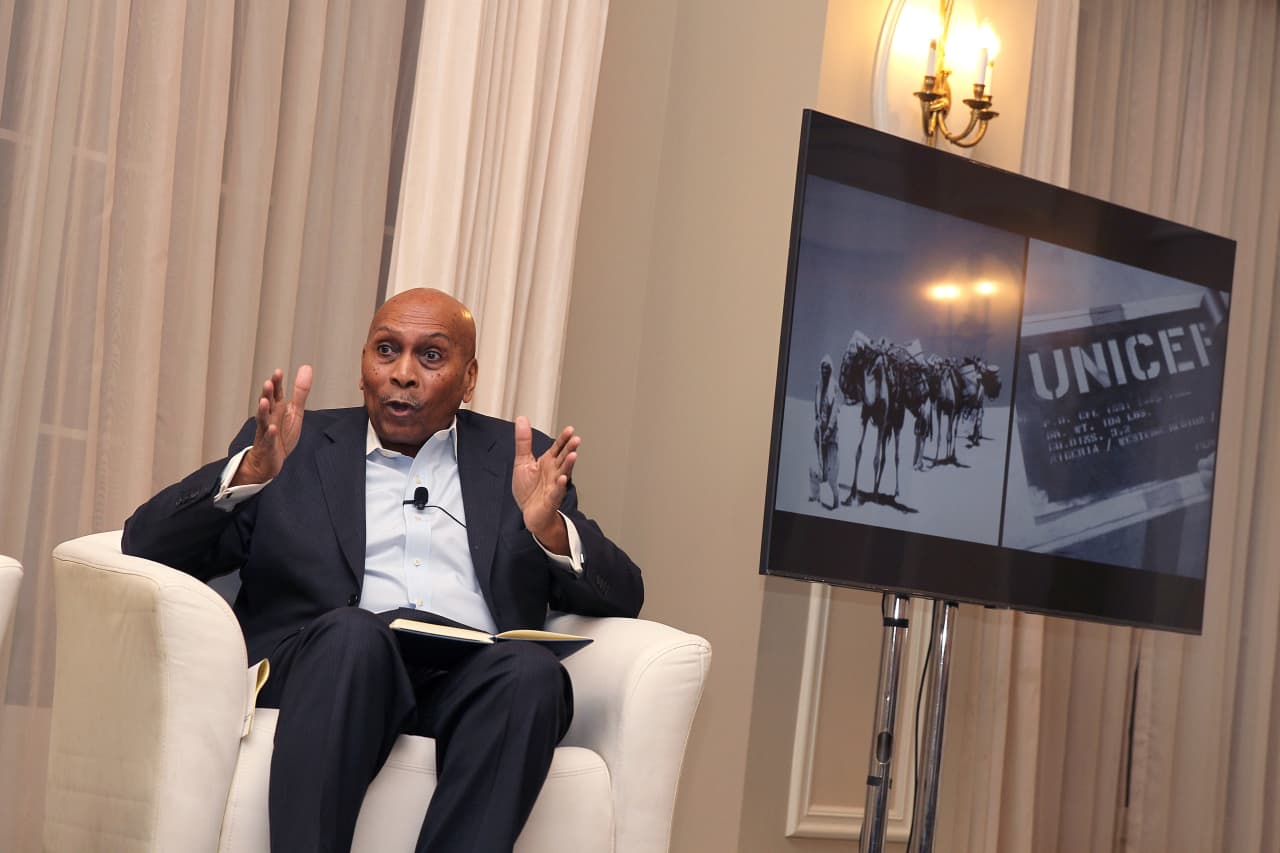
Courtesy of Unicef
Unicef, officially the United Nations Children’s Fund, is a U.N. agency focused on humanitarian and developmental aid to children. It relies on funding from governments and intergovernmental agencies. But it also depends on the private sector, from US$1 gifts provided by individuals across the world to giving by corporations, foundations, and wealthy donors.
Total giving to Unicef from the private sector totalled US$2.07 billion last year, representing 23% of total revenue, according to its annual report. Of that total, US$829 million was unrestricted—money that is particularly valuable because it’s flexible.
“That funding is critical for us to be able to cover underfunded operations, emergencies or situations of armed conflict that are not in the headlines anymore,” says Carla Haddad Mardini, director of Unicef’s division of private fundraising and partnerships.
The International Council was formed in 2017 not only to boost private-sector donations, but to create a powerful group of individuals who could bring their knowledge, expertise, vision, and networks to the organisation, Haddad Mardini says.
“We don’t see them as donors, we see them as partners,” she says.
That’s because the council’s engagement with Unicef goes behind giving. “They support by opening their networks to us, thinking with us about the global problems that make children more vulnerable,” Haddad Mardini says. “It’s invaluable in terms of the advocacy that they do and the influence that they exert.”
The council, of course, also provides needed funding. Since it was formed, members—who give US$1 million when they join—have donated more than US$552 million.
This past year, the council brought on 15 new members, half from countries in the Southern Hemisphere, including India, Vietnam, Indonesia, and Mexico. The incoming chair is Muhammed Aziz Khan, founder and chairman of the Summit Group, a Bangladesh industrial conglomerate, whose foundation is focused on the education of vulnerable children in the country.
“We want this group to be as diverse as possible,” Haddad Mardini says. “They’re not there for their own visibility, they are there to really meaningfully and purposefully make a difference.”
Bernard Taylor, an arbitrator and mediator at Judicial Arbitration and Mediation ADR Services and a retired partner with Alston & Bird, an Atlanta-based international law firm, has been an active supporter of Unicef for years, joining its Southeast Regional Board in the U.S. in 2007. In 2018, he joined the council and this past summer, became chair of the organisation’s National Board.
One of Taylor’s earliest experiences with Unicef was a trip to Madagascar not long after the island in the southwest Indian Ocean off the coast of Africa had been hit by successive cyclones.
“It was really eye-opening from the standpoint of seeing the despair that so many people were living through and that the children were living through,” Taylor says. After returning home and taking his children on a trip to the local mall to buy supplies for a school project, he was overwhelmed by the abundance that surrounded them.
“Just a short plane ride away, people were living in despair and death—we had to do something about that, and what I saw was that Unicef was doing something about it,” he says. “That’s how I got involved and committed.”
Often, the council responds to emergencies such as the urgent need for global vaccine distribution during the pandemic. In 2022, the council raised US$3.2 million to support Unicef’s work in Afghanistan, and another US$5.5 million in response to the war in Ukraine.
But as Haddad Mardini says, the council also goes beyond check-writing.
“We are all focused on pulling together our resources, our expertise,
our networks,” Taylor says. “As a private philanthropy, we’re able to be nimble, to be fast and flexible in ways that can address the issues that Unicef is struggling with. As a council member, I’m able to utilise my influence with peers and business leaders and even governmental entities.”
Recently, he spoke with one of Georgia’s U.S. senators to inform him about Unicef’s activities and to get his support. “Maybe you would call us extenders of influence—we increase, substantially, the influence and the ability of Unicef to do its work.”
The experience of Taylor, O’Farrell and others as private sector executives can also be influential to the thinking of Unicef’s executives, Jones says.
“They’re bringing their private sector experience and what they’re seeing in their partnerships,” she says. “It’s a space where they feel comfortable being very open and candid. It’s a nice dialogue with leadership.”
 Copyright 2020, Dow Jones & Company, Inc. All Rights Reserved Worldwide. LEARN MORE
Copyright 2020, Dow Jones & Company, Inc. All Rights Reserved Worldwide. LEARN MORE
Records keep falling in 2025 as harbourfront, beachfront and blue-chip estates crowd the top of the market.
A divide has opened in the tech job market between those with artificial-intelligence skills and everyone else.
GAC unveils Australian specifications for its all-electric AION V SUV, combining global design and next-gen battery technology.
The wait is over. GAC has confirmed the Australian specifications for its all-electric medium SUV, the AION V, available in Premium and Luxury trims.
BMW has unveiled the Neue Klasse in Munich, marking its biggest investment to date and a new era of electrification, digitalisation and sustainable design.
Micro-needling promises glow and firmness, but timing can make all the difference.









